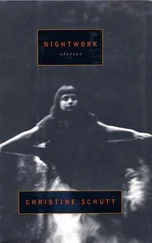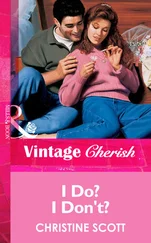"Are you bitter?" Miss Wilkes asked.
"I'm growing more disappointed every day," Lisa said.
"And why is that?"
"I am sure Suki Morton does not have the grades or the numbers, but she will get into Brown. She's not very smart, but she has a lot, a lot of money. So there's one reason to be bummed."
"Any other?"
Lisa had to pause over this question. "Health. Health guarantees. I expect to stay healthy because I eat cautiously, and I exercise and I don't smoke — well, now and then I have a puff — but then I look at Astra Dell, who has led a pure existence, and she is sick." Lisa said, "She's been a vegetarian for three years!"
Miss Wilkes rose abruptly and said, "I'll be back." In the bathroom she ran cold water over her wrists. Her face in the mirror seemed to waver, and she did not want to go back to the booth. Not because of you: What had Lisa Van de Ven meant by that remark? They had been spending a part of every school day together, but this was the first time they had ever gone anywhere together outside of school. She did not want to open her mouth — too many teeth — but she did when she saw Lisa smiling at her return. Miss Wilkes had never perfected a closed-mouth kind of smile; besides, she was too big a woman for that. "We should get the check," Miss Wilkes said, and she gestured to the waiter.
"I'm all right," Miss Wilkes said. "Don't worry. Hospitals upset me."
"Yes."
"No," she said, and she put her hand over Lisa's to stop her from sliding over money. Her hand over Lisa's looked large, and she kept the girl's hand under. Was the girl embarrassed? The salt and pepper, the cup of sugars, the poster, the booth — what else was there to look at? She looked at her hand over Lisa's, and Lisa, she saw, looked at her, and the girl made no effort to turn away, and so this was how it demonstratively started, although Miss Wilkes was not sure she wanted it started. She should never have suggested they visit Astra together, should never have prolonged the afternoon. But here they were in the coffee shop without words — of course! — with a gesture, followed by another, a caressing thumb. Her large, chewed-up thumb over Lisa's smaller, chewed-up thumb. "You're wearing polish," Miss Wilkes said.
"My mother says it looks cheap."
"I don't know about that."
"It does," the girl said, "but I like it."
The salt and pepper, the poster again — what else was there to look at? Now Miss Wilkes was embarrassed or more embarrassed than when they had begun this, for this was a beginning for them. This was what happened at beginnings. Tentative, self-conscious, clumsy, clumsily affectionate starts. I, I, I, the stuttered confessions. She might say, I'm not very good with words, but Lisa was lifting her hand out from under, she was squeezing the older woman's hand, she was laughing a l it tle and patting Miss Wilkes's hand, saying, "What big teeth you have, Grandma," saying, "Let's go, it's late, you can walk me home," saying, "Don't be disingenuous, Janet. You knew I was a take-charge person."
Miss Wilkes — Janet Wilkes — was at least ten years older than Lisa Van de Ven, but in this moment she felt as if she were the student.
Mothers
Car Forestal's name did not come up at the senior parents coffee, although Astra's did. A number of mothers could have told stories about girls from other schools, but only Mrs. Cohen recounted to the group what she had heard was happening at St. Catherine's and Norris-Willet. "The pipes are rusty from girls being sick." Several mothers bemoaned their helplessness. The college counselor said it wasn't happening at Siddons.
"It —what isn't happening?" Mrs. Van de Ven asked, and Mrs. Cohen explained the acidic effects of throwing up. Mrs. Cohen said, "You and I don't have to worry about that problem."
"What does that mean?" Mrs. Van de Ven asked.
Car Forestal was the unnamed girl Mrs. Van de Ven described as a latchkey kid. Some latchkey was what Mrs. Cohen thought. Latchkeys, more like it. The father had some three or four homes, didn't he? And just where was Mrs. Forestal now? Why wasn't she at the coffee?
"Poor little rich girl."
"Poor little poor girl."
"Precocious."
"Depressed."
"Unwell."
CHF
Car Forestal lay on her bed smoking, swishing her feet, and feeling with the toes of one the smooth, polished toes of the other. No classes until after lunch, and she never went to school for lunch; except for advisory meetings with Dr. D, she never even sat in the lunchroom. The oily-gravy odors made her sick.
Astra occurred to her and how weird it was that she, Car, who smoked and drank, was healthy while her best friend was sick. Good could be wrung from dwelling on Astra. Comparatives were meaningful.
Now Car was sad, and she thought she should call her father. Astra he would understand. She would call him if she knew where he was.
Marlene
Marlene let her red pen trail to the center of the lined page to draw circle over circle over circle, petal, petal, stem. One flower, two, in smears of them, second-period math class. The old crowding in of the big terms: free will or fate. Underneath the gobby flowers, she drew an enormous, ornamental, biblical A. Astra Dell's dying: What did it mean to them all in this overheated room? Check-plus, best girl, A, Astra, Astra Dell. Marlene Kovack wrote Astra Dell in her notebook; she wrote over and over the letters to the sick girl's name; she fattened each into a cartoon.
"Marlene?" Miss F scolded in questions. Death adrift, an odorless gas in the room, Marlene Kovack felt its woozy effects and was glad when the bell rang and she could leave off math and numbers.
Out of school, she felt prettier — Marlene sat out recess and her next two frees in her apartment in the bathroom some twelve blocks away, and here she thought about Astra Dell again and Astra Dell's father and Astra Dell's mother, who was dead. When Marlene was ten, the only mother with a face had been her own mother, Theta Kovack, even then droopy, beaked, a slot for a mouth, and thin hair fluttered to balding — an embarrassment. Marlene saw her mother as she was, and Marlene had seen Mrs. Dell as she was, too. Mrs. Dell had given school tours. Right up to her violent end, Mrs. Dell was giving tours; she had stood just behind the visitors in the doorway to Miss Hodd's English class and smiled at her daughter. Marlene had seen Mrs. Dell's face — eyes, nose, mouth matched up in small perfection, very pretty. A softer Astra, orange hair not red. Why couldn't Mrs. Dell have been her mother? Traitorous thought.
One day Astra Dell's enormous hair clip snapped off (that's how heavy Astra's hair was), and Marlene had found the hair clip and kept it. The clip was tortoise-shell and greasy from Marlene's rubbing it. She rubbed it now and looked under the ledge of the bathroom sink, junked up with soap and dismal.
Siddons
Impossible in the face of impossible, implausible, some of them imminent, defining decisions on the way: early apps. Early applications.
"One thing you have to say about our class," the two Elizabeths said, "we don't talk college."
"I leave that to my mother," Lisa said.
None of the girls — save for Ufia, Saperstein, Song, and Elizabeth G., who were applying for early admission — wore college sweatshirts, but that didn't mean the rest of the class hadn't picked up shirts and caps from their own first-choice colleges and wore these souvenirs at home. Kitty Johnson hoped to go to Williams and wore purple scrunchies; Alex Decrow hoped to go to the Rhode Island School of Design; Suki Morton, Brown; Lisa Van de Ven, Brown; the other Elizabeth, Brown; Edie, Penn; Car, Harvard or Columbia— I'm allowed to have two favorites; and Astra? Where did Astra want to go to school?
Читать дальше












